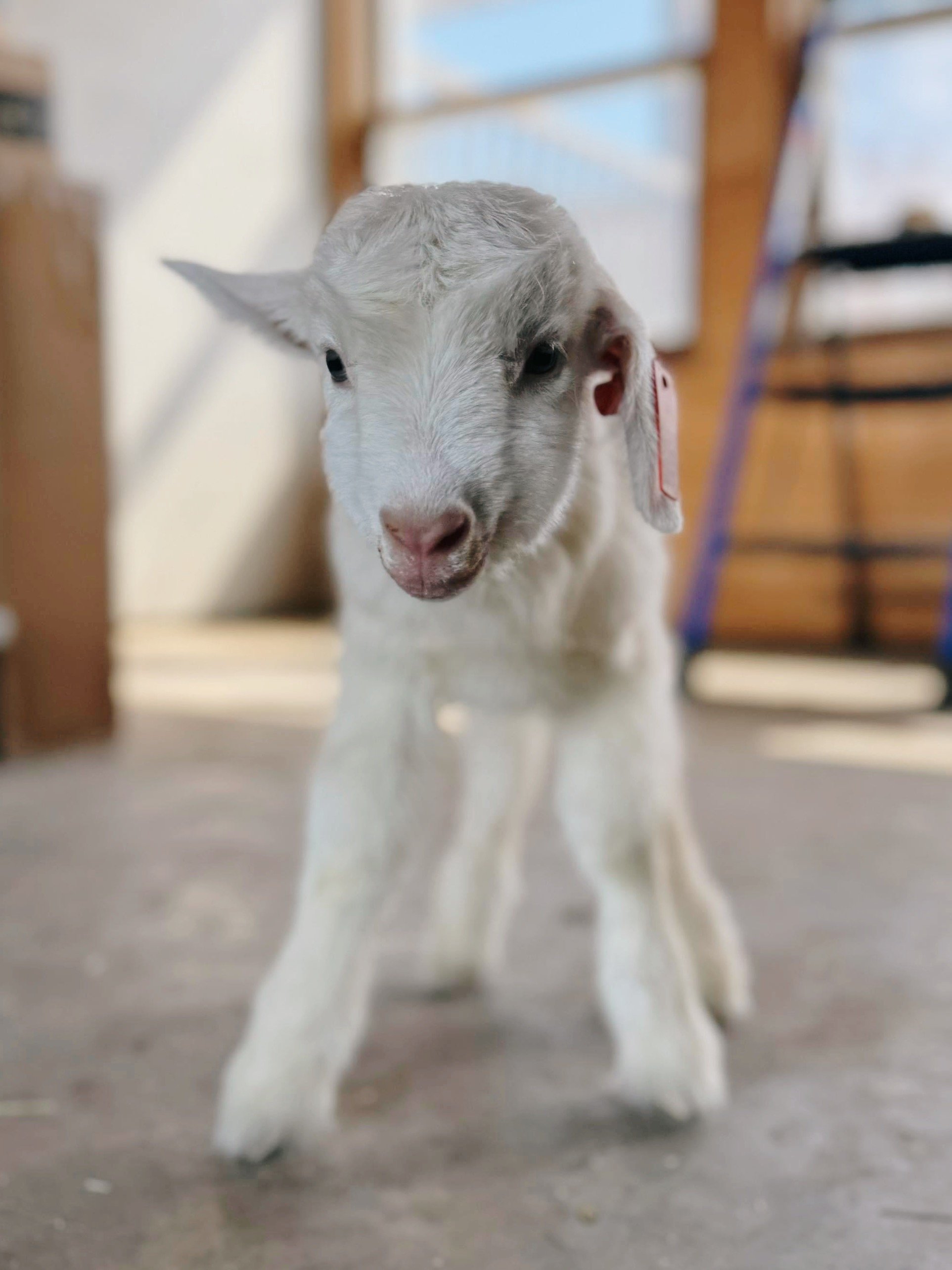Moose
In March 2024, we recieved a heartbreaking plea for help. A baby goat with a cleft palate had been abandoned at an animal auction. The family who purchased him began tube feeding him, but when their vet recommended euthanasia, they sought out our help instead.
We brought Moose to Dr. Hawkins at Purdue University, who realized that Moose does not have the anatomy for a surgery that most cleft palate patients do. However, he was willing to do an experimental procedure involving a prosthetic palate.
However, Moose was battling aspiration pneumonia and a fever, both of which needed to be under control before Dr. Hawkins could move forward with the surgery. He responded positively to treatment and his fever broke, so we began to plan for his surgery. However, when preparing for surgery, an x-ray caught evidence of a septic infection in his vertebrae, that put Moose’s palate surgery on-hold indefinitely.
Moose began treatment to target the infection. However, during a short, supervised outdoor break from his kennel, Moose did one little frolic, as baby goats do, and suffered a pathological fracture near his scapula. The septic infection caused his bones to become weaker, which makes them at a higher risk to fracture.
The infection in Moose’s vertebrae was a case of osteomyelitis—severe inflammation and infection in the bone tissue and marrow itself. The bone has already sustained some breakdown. Moose was receiving aggressive treatment of IV antibiotics three times per week, and based off of CT and radiograph imaging, Moose’s medical team expected this infection to take a long 3-6 months from now of to fully clear.

